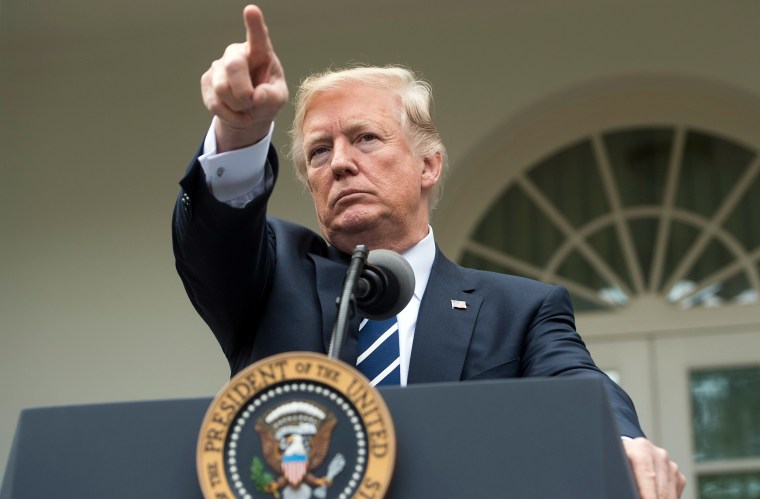WASHINGTON — Lawmakers are facing daunting hurdles and deadlines as they try to carry out President Donald Trump's pledge to overhaul the nation's tax system and cut rates.
The Senate took a step in that direction on Thursday night when it narrowly passed the GOP budget proposal, which lawmakers plan to use to unlock special "reconciliation" rules to circumvent a possible Democrat filibuster of any future tax legislation.
But the 51-49 budget vote suggests Republicans will have to operate within the narrowest of margins to get tax cuts done.
While the White House had courted Democrats to support the budget, none broke ranks. One Republican, Sen. Rand Paul of Kentucky, defected and a number of others said their vote did not guarantee support for a tax package down the road.
The budget, a version of which the House passed last week, would allow Republicans to increase deficits by up to $1.5 trillion over the next decade. It's possible some procedural tweaks, which critics dismiss as accounting gimmicks, could make the impact appear less dramatic.
Related: This One Word Is Worth $500 Billion as Congress Debates Tax Cuts
Republican negotiators have yet to put together the tax legislation and have only a bare-bones outline — which already looks likely to change. The plan has already garnered criticism from inside and outside the party, as well as from various interest groups that have billions of dollars on the line.
Trump and congressional leaders are hoping to finalize a deal by the end of the year, but that will be difficult given there are only about 20 working legislative days left in the holiday-heavy calendar.
"I have no idea," Sen. Bob Corker, R-Tenn., told reporters Thursday when asked if Republicans would make the year-end deadline. "It’s a heavy lift."
The plan would eliminate many tax deductions in order to lower overall tax rates and simplify a tax code that almost everyone agrees is overly complicated and riddled with loopholes. Trump especially wants to lower the tax rate for corporations, now at 35 percent.
To pay for rate cuts, the plan would eliminate deductions worth trillions of dollars, such as for taxes paid to state and local governments, though it would not do away with two of the biggest, for charitable giving and mortgage interest. Meanwhile, the standard deduction for individuals would double.
Trump and Republicans know they will have difficulty attracting Democratic support for tax reform — but they're still holding out hope based on the handful of Democratic senators up for re-election next year in states Trump won last year.
Related: Senate Passes $4 Trillion Budget Bill, Paving Way for Tax Reform Effort
Democratic senators on the Finance Committee met with Trump on Wednesday and came away complaining that the White House was dismissing their concerns that the tax plan would strongly benefit the wealthy and potentially raise taxes on some middle-income families, an issue independent analysts have raised as well.
"Trump kept saying, ‘We don’t want this to be a tax cut for the rich, this is a tax cut for the middle class,'" Sen. Sherrod Brown, D-Ohio, who is on the ballot in 2018, told reporters. "Well, that’s not what the McConnell framework does," he added, referring to the Senate majority leader, Mitch McConnell.
When Republicans do finalize their plan, they will be able to pass it in the Senate, where they have a two-vote edge, with only a simple majority vote. How the plan fares in the House, however, will be another matter.


